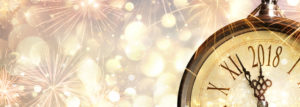
For many people, the beginning of the new year starts on January 1st. This is a time for fresh starts, when it can be useful to consider making resolutions and becoming a better version of yourself. While the symbolism of beginnings can be encouraging, not all people view this date as the start of the new year. There are a variety of calendars currently being used across the world, and each has a different idea of when the year starts anew. Some of these systems are tied to cultural practices, and others have more spiritual roots.
No matter when you personally believe the year begins again, it can be fun to take a look at the practices of others. Explore some of these interesting methods for celebrating the new year and discover rituals you might be able to discover a personal connection to.
Moon Cycles
Modern calendars all have ancient roots. In the early days of humanity, time and distance were measured by examining the positions of celestial bodies in the sky. Since the moon is a prominent fixture in the firmament of night, it is easy to see why so many events on the calendar coincide with lunar phases. For Buddhists, the dawn of the new year begins with the full moon. However, different groups of Buddhists have varying opinions on exactly what time of year this happens.
Some Buddhists celebrate the start of the new year in the springtime. Instead of having a fixed date each year, the event is marked by the arrival of the first full moon in the month of April. Other groups of Buddhists found throughout China and Korea believe the new year starts with the first full moon of January. Beyond this, there are groups of Buddhists in Tibet who honor this event at the first full moon of February. Despite the difference in dates, all of these events are celebrated with three-day feasts enjoyed with family and friends.
Enkutatash
Though the moon and stars have long been helpful in establishing annual events, there are other methods of measuring time. In Ethiopia, the weather plays a pivotal role. Rain brings life to the landscape and bounty to the people. When the rainy season ends, it is time to harvest and store food for the long winter ahead. Ethiopians celebrate the start of the new year at the end of the rainy season, right as the harvests begin. This event is called Enkutatash, and it often falls around the second week of September.
Celebrations for this event vary depending on what region of Ethiopia a person is from. In more rural areas, it is common for children and adults to exchange flowers. Bouquets of daisies are the most common gift, though modern practices have seen a variety of flowers used. In the cities, people will often gather to enjoy a meal and exchange gifts or cards. Common dishes for Enkutatash include hearty stews and flat bread. Though not always common, many also associate this holiday with the historical and religious tale of the Queen of Sheba and her visit to King Solomon.
Spring Cleaning
In Iran, the start of the new year takes place in the spring. The event normally occurs around the time of the Northward equinox, which happens sometime in the middle of March each year. Perceived as a time of new beginnings, those who celebrate this date often do so by cleaning their homes and throwing large feasts with delicious noodle soups.
The new year does not always have to start on January 1st. When December starts to wind down and you feel like it really is not a time for exciting beginnings, it might mean you should explore your alternatives. Find a better time to ring in the new year, and give yourself the sense of renewal your spirit needs.

